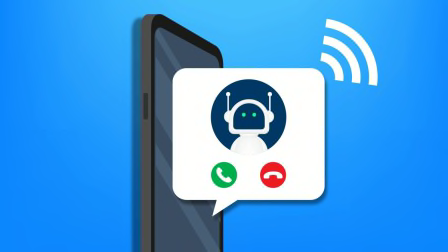The New Scams to Watch Out For
Fraudsters are using more sophisticated technology to trick you out of your money. Here's how to stay one step ahead.

A call from the fraud department at your bank. The offer of a dream-come-true vacation. An attractive job posting. Scammers can worm their way into your world—and your money—in insidious ways. And today, even old scams are being given new life using technology that can make bogus pitches more convincing, and more dangerous, than ever.
For one thing, criminals can now easily access deeply personal information about you, from your birthday to your Social Security number, and use it to convince you of their "identity"—for example, that they are a bank employee. Another new problem: Artificial intelligence is being used to create "deepfakes"—realistic computer-generated videos of people you know and trust, like CEOs and celebrities—to get you to lower your guard and open your wallet.
The Bank Scam: Your Account Has Been Compromised!
Name: Cathy M.*
Lives in: Santa Clara County, Calif.
Amount lost: $25,000
Cathy M., a 70-year-old widow, considers herself to be financially astute and risk-averse. She has all incoming calls from unknown numbers sent straight to her voicemail. And she would never give out her bank account information to anyone over the phone.
So last September, when a Wells Fargo caller ID popped up on her phone and the caller introduced himself as a representative of the bank’s fraud department, she was wary. The man said her account had been compromised and that he wanted to verify some new charges that appeared to have been made in Texas, a place she had not recently visited.
"How do I know you’re really from Wells Fargo?" was Cathy’s first question.
The caller then read back to Cathy the last four digits of her Social Security number, a personal detail so closely held, in her view, that the caller had to be someone from her bank. Her guard came down; she was only too happy to help prevent more fraudulent transactions.
Over the next 90 minutes, the caller elicited numerous banking details from Cathy, including her account password. He had her write down and read out lengthy strings of numbers he called "transaction IDs." While she was busy helping in what she thought was fraud prevention, the scammer (or an accomplice) changed the contact phone number on Cathy’s account and called Wells Fargo—pretending to be Cathy—telling an employee she was authorizing a wire transfer of $25,000 to pay a contractor. The real Wells Fargo emailed Cathy right away, inquiring about unusual activity on her account—but she didn’t notice the alert in her inbox because the scammer on the phone kept her distracted. The scammer also told her not to access her bank account for a few hours while the "active investigation" was going on.
When she finally hung up, Cathy had a bad feeling. She quickly called Wells Fargo using the phone number on the company’s website, but it was too late. The wire transfer had already taken place—and couldn’t be undone.
The $25,000 scam left just $2,017.75 in Cathy’s savings account. A day later, Wells Fargo denied her reimbursement claim, saying that because she had willingly shared her personal financial information, albeit under false pretenses, there was nothing it could do. The bank says it "deeply empathizes" with cases like Cathy’s.
Months later, Cathy says she is still finding it hard to sleep at night, mulling over what happened and "what made me believe him. I am angry," she says.
How to Protect Yourself
Scammers running imposter frauds can use what’s called spoofing technology to make it appear as if a phone call or text is coming from your bank. And they can purchase personal information (such as Social Security and bank account numbers) on the dark web or via the messaging app Telegram to help convince you they are who they say they are. Here’s what to do to stay safe:
Confirm that the communication is real. If a bank or government agency contacts you, don’t assume caller ID is showing you correct information. Hang up and find a verified phone number online to call the bank or agency back. As a precaution, it’s also a good idea to have all unknown calls sent directly to voicemail.
Never give your financial info to anyone. Legitimate bank employees should never ask for your username, PINs, one-time access codes, or passwords. Banks understand this information is meant to be private and secure. Instead, to confirm your identity they will send you a one-time code that you then enter yourself.
Don’t act fast. To put you off guard, scammers will often say that a matter needs to be handled immediately or your money could be at risk. Don’t take the bait. Rather, confirm whether there is really an issue by calling and checking with the bank or government agency yourself.
The Shopping Scam: I’ll Take It—and Your Money!
Name: Kathy D.*
Lives in: Washington, D.C.
Amount lost: $200
Kathy D., who worked in environmental research, policy, and education jobs for various federal agencies and nonprofits in Washington, D.C., wanted to sell a dining room table, so she posted it for $250 on Facebook Marketplace.
Within minutes, Kathy says an interested buyer responded and agreed to a deal sight unseen. She was selling the table for a great price, so it made sense to Kathy that the buyer wanted to act fast. "I was so excited because I thought we were actually going to sell this thing," Kathy remembers.
Kathy recalls the buyer writing that she was Swedish and any typos in her messages were due to poor English. She says the buyer sent a photo of herself to confirm that she was a real person. ("A very attractive blonde, kind of Scandinavian-looking," Kathy recalls.)
Then the buyer said she wanted to confirm that Kathy was a real person selling a real piece of furniture: If Kathy would send her $200 via Zelle, the buyer would return it immediately along with the price of the table. The request seemed odd, but Kathy says she didn’t know how Facebook Marketplace transactions were supposed to work. She also felt her own honesty was in question. And she really wanted to sell the table.
So, despite her misgivings, Kathy sent the money. Then a second request came, this time for Kathy to pay for insurance if the table arrived damaged. Annoyed, Kathy almost backed out—but finally sent that money, too. The second payment failed when Kathy’s bank flagged it as suspicious. At the buyer’s insistence, Kathy called her bank to push the payment through.
Kathy says she realized it was a scam when the bank employee started asking questions. Asked for comment, Meta, which owns Facebook Marketplace, says the platform is investing in technology to remove similar scam threats.
How to Protect Yourself
Selling or buying products online from another person is risky. Checks can bounce, purchased goods may never arrive, and the buyers and sellers themselves might be scammers, intent on getting you to quickly send money to them and then disappearing, as in Kathy’s case. Here’s how to use peer-to-peer marketplaces safely:
Know who you’re dealing with. When selling or buying on a site like Facebook Marketplace, check the buyer’s or seller’s Facebook profile and see whether they have friends and realistic activity, like recently posted vacation photos. Separately, check their past Facebook Marketplace transactions and reviews by other buyers and sellers.
Be wary of anyone offering you full price. Ditto if they don’t seem interested in the item’s condition or seeing it in person. These could be signs the buyer doesn’t really want the item and is just looking to scam you.
Do not give a buyer your address or other personal information. To complete a transaction, agree to meet at a public place and accept payment only in cash. Zelle, Venmo, and other instant payment methods lack certain consumer protections, so you should use them only to send or receive money from people you know and trust.
Use marketplaces with built-in protections. Etsy and eBay, for instance, offer warranties for both buyers and sellers if transactions go awry. And they handle the payments, so you never have to give a stranger your credit card number.
The Employment Scam: Have I Got a (Fake) Job for You!
Name: Courtney T.*
Lives in: Santee, Calif.
Amount almost lost: $500
In 2023, Courtney T. was ready for a job change and had been scouring online job postings when she spotted a role at Luminis Health, a regional nonprofit healthcare provider. It offered part-time hours and decent pay. Courtney applied and quickly got a message from someone who seemed to be a Luminis representative. He introduced himself as Andrew, the company’s "online interview manager." Communicating via a Microsoft Teams chat, Courtney followed his prompts, filled out a questionnaire, and provided references. She never met or spoke to Andrew but was soon told she was deemed a "good fit" and was offered a job.
That’s when Andrew told Courtney she would need to buy some new computer equipment. But don’t worry about the costs, he said, because the company was wiring her startup funds. Indeed, when she checked her bank account, the promised sum was pending. At that point, Andrew told her to send $500 via Zelle to the company’s chosen vendor at a Yahoo email address.
At the time, Courtney thought it odd that the company was asking for money from a new employee, but she convinced herself it had something to do with post-COVID protocols. So she tried to send the money. Luckily, her bank—perhaps suspecting a scam—delayed, then canceled the transaction.
Courtney relayed the payment issue to Andrew, who then told her to use Apple Pay or Cash App. That’s when Courtney began to think this might be a scam. Luckily she had not quit her current job—but she’d come close to being out of work and short $500. Luminis says it is aware of scams like the one Courtney encountered and is "working tirelessly to protect job seekers."
How to Protect Yourself
Scam job posts often come complete with fake company websites and LinkedIn pages, fictitious recruiters with fleshed-out social media profiles, and realistic interview prompts. Employment scams typically target younger people who are more technologically savvy. To avoid them: Investigate the employer yourself. To determine that a company is real, find its website and ascertain that it has an address and phone number. If you spot different websites for the same company, that’s a red flag.
Never send money or give bank account information to an employer, recruiter, or temp agency. Scammers can convincingly impersonate real-life companies.
Insist on a face-to-face meeting, online or in-person. Video calls provide greater transparency and the opportunity to ask more specific questions.
The Travel Scam: Dream Vacations for Years to Come!
Name: James Orr
Lives in: Fresno, Calif.
Amount lost: $7,000
When James Orr, an engineer living with his wife in Fresno, Calif, saw a brochure for Primo Network Adventures in his mailbox, it caught his attention. The colorful pamphlet included images of people lounging on cruise ships and reclining in first-class airline seats. It seemed to promise a cruise and a weeklong condo rental, plus a chance of winning valuable prizes like a Tesla. An info session was planned at a nearby hotel, and Orr and his wife decided to attend.
When they got there, they learned about Primo’s 10-year travel membership program, which included a condo rental and big discounts on exclusive travel bookings. The cost: nearly $12,000 up front, plus annual fees.
A key selling point was Primo’s Facebook page, filled with gorgeous photos of beaches, resorts, and other attractions. Primo also touted a password-protected booking portal. Orr hadn’t heard of the brand but decided the company looked legit—and the potential savings seemed huge.
Still, Orr wasn’t completely sold. He says he told them $12,000 was too much. They asked how much he would spend. He offered $7,000—the amount he had just received for a consulting job—and they accepted. Orr then signed an eight-page agreement that he says he didn’t read carefully.
It turned out the Primo membership was just a new version of the old timeshare scam. Primo likely microtargeted older, well-off retirees by buying their personal information from data brokers. Orr says he was never able to take advantage of any of the promised deals because none were appealing or fell during a time when he could travel. He and his wife eventually grew distrustful of anything they received from Primo.
In the end, Orr used his Primo membership only once, to book a motel room for a high school reunion. He estimates he saved around $100 on that reservation.
CR tried to reach out to Primo for comment, but its website and phone numbers are no longer working. A travel agent formerly affiliated with Primo said the company has apparently gone out of business.
How to Protect Yourself
Scammers now have sophisticated tools to find the type of people they feel are most likely to fall for the hard sell. They can buy complete "dossiers" derived from publicly available online sources, as well as personal data collected from cyberattacks and leaks. They then tailor their scams to go after especially lucrative targets, such as retirees living in wealthy ZIP codes.
The scams themselves are manipulative. Fraudsters often pressure their targets to act fast so that they don’t miss out on supposedly valuable opportunities. The goal is to keep you from thinking too much about what you’re buying or how much you’re spending. So before you jump on a seemingly great offer, remember these tips:
Take your time. As the saying goes, if it sounds too good to be true, it probably is. In James’ case, the scammers dangled luxe trips and big discounts. By saying he had to make his decision on the spot, they tricked him into rushing his decision without studying the fine print.
Be wary of promotional prizes. Consumers are often lured in by the mere chance of winning a sweepstakes prize. Don’t be. Even if promoters fulfill their obligation to disclose the odds in a clear and conspicuous manner, your chances of winning are probably very, very slim.
Alert your credit card company. If you think you might have been the victim of this type of scam, and you paid using a credit card, report it to your credit card company ASAP. Disputing a credit card charge forces the financial institution to investigate whether the buyers got what they paid for. In many cases, if a scam is discovered, the charges can be reversed.
Immediately contact your state’s attorney general. Many AGs have web portals and hotlines for consumers to file complaints. Also file a report with your local police department, the Federal Trade Commission, and the Consumer Financial Protection Bureau. In some cases, these entities can identify scammers as part of larger investigations and, eventually, help you get some of your money back.
Stop a Scam Before it Starts
Here’s how to avoid being targeted—and losing money if you are.
Share less in public. The more personal info you post publicly, the more material a scammer has to work with when crafting a personalized attack. Don’t share phone numbers, home addresses, or financial details on social media, experts say. Think twice about posting photos of your home, details about an illness, or the names of family members.
Be suspicious of "emergencies." Scammers often make urgent requests and pressure victims to act fast. They might pose as a law enforcement or IRS official and tell you to pay them quickly or risk a big financial penalty. Others pretend to be tech support agents and say they need access to your computer to prevent an ongoing hack. The need for speed is a scam tip-off.
Have a no-share policy. Never give anyone who contacts you—whether by email, text, phone, or in-app message—sensitive personal data. This includes bank account numbers, passwords, and security codes, but also your date of birth, home address, Social Security number, or anything else that can be exploited for financial gain.
Get an outside perspective. Suspicious about something? Talk it over with friends or family before acting. They may have heard similar stories. And talking to a neutral observer may help you see what’s really going on.
Editor’s Note: This article also appeared in the March 2025 issue of Consumer Reports magazine.
Editor’s Note: Our work on privacy, security, AI, and financial technology issues is made possible by the vision and support of the Ford Foundation, Omidyar Network, Craig Newmark Philanthropies, and Alfred P. Sloan Foundation.
*Last name withheld at the individual’s request.
@consumerreports Digital scams disproportionately harm Black and Latino consumers—but you can protect yourself! Tap the link in our bio for step-by-step guidance on staying safe and keeping your money secure. #moneytok #financetiktok #cybersecurity #cybersecurityawareness
♬ original sound - Consumer Reports




















